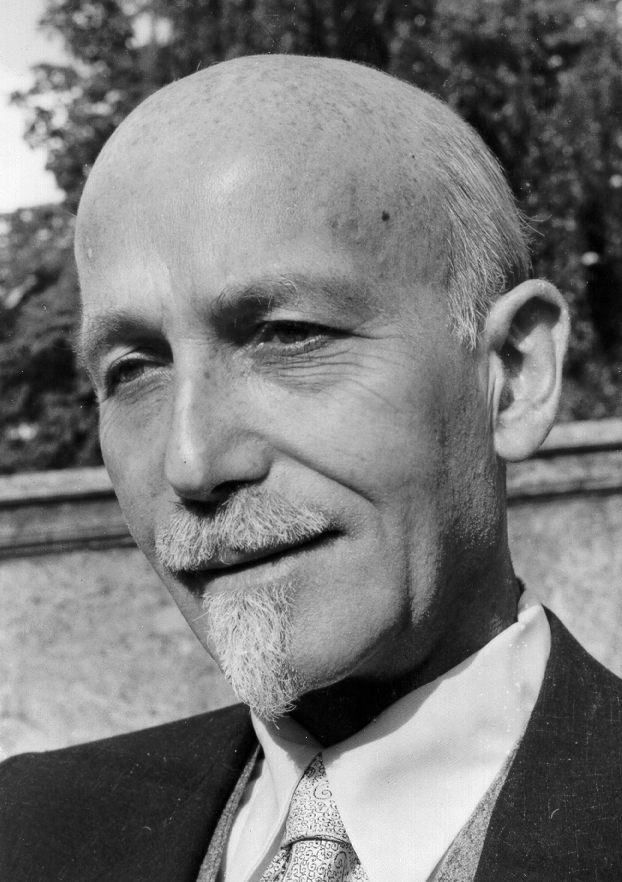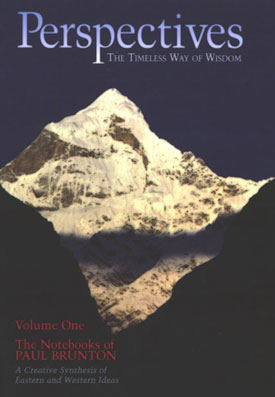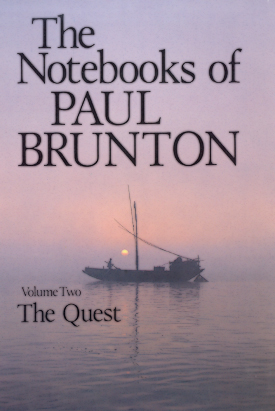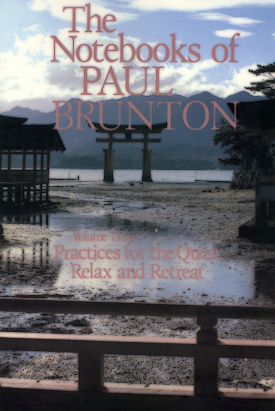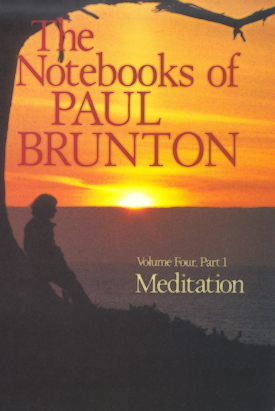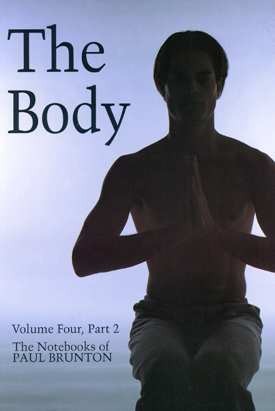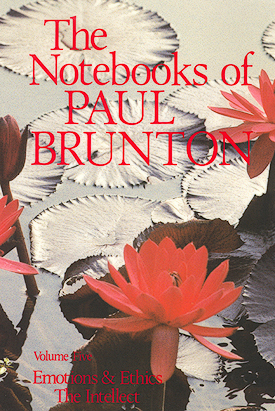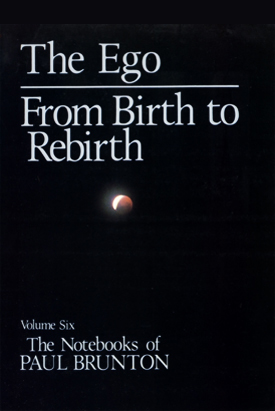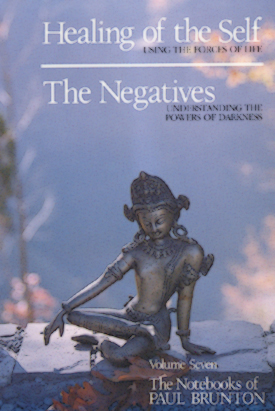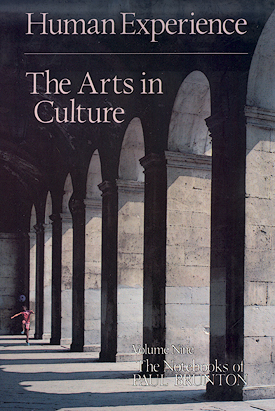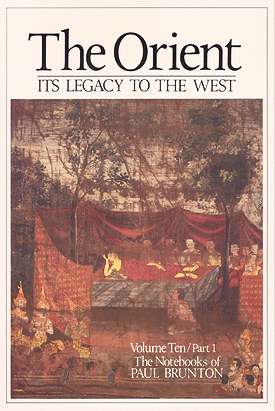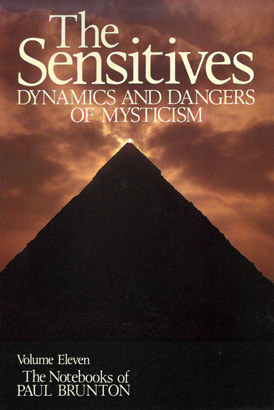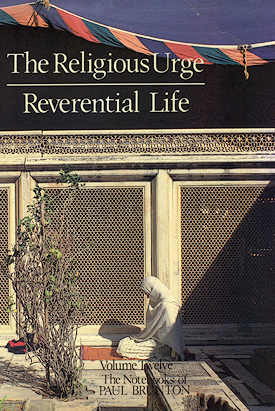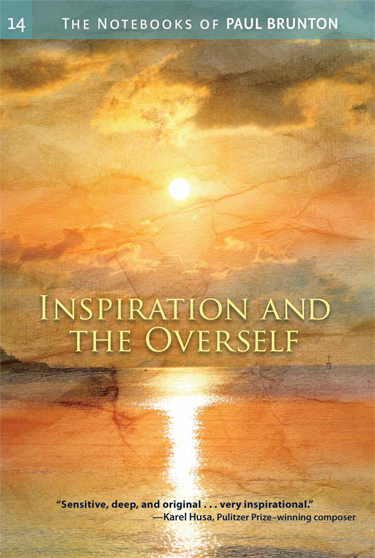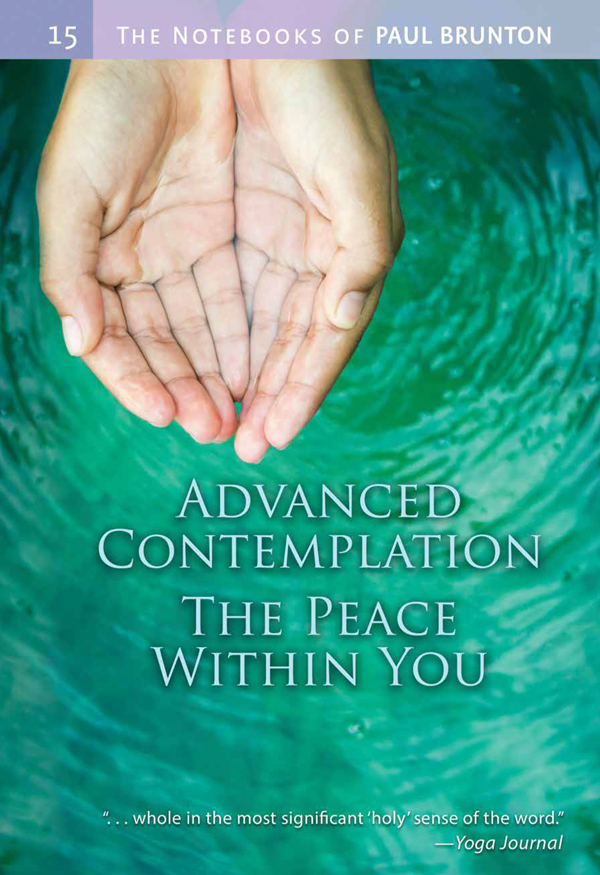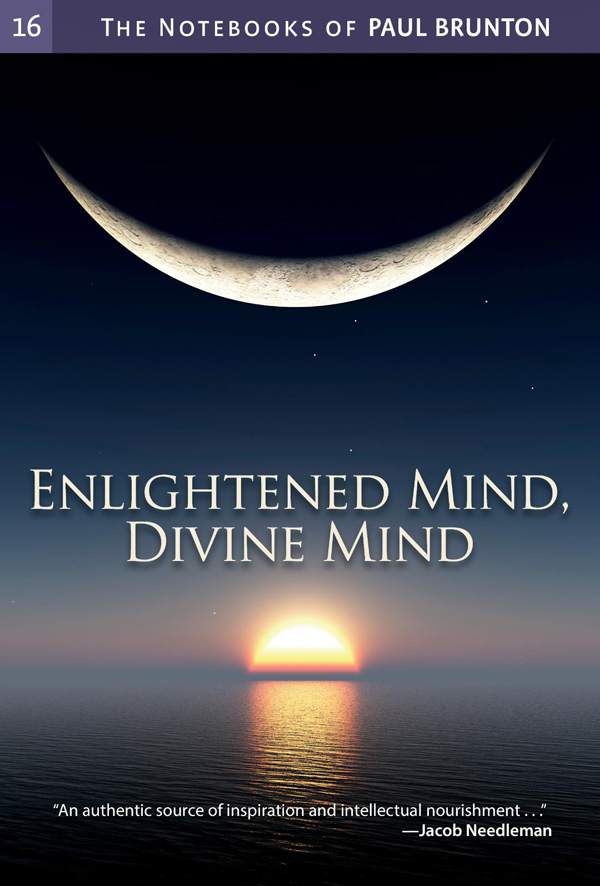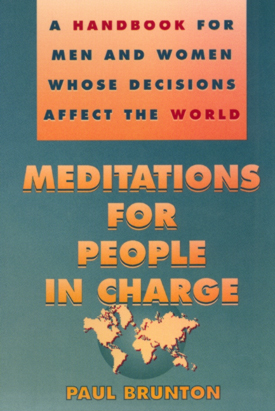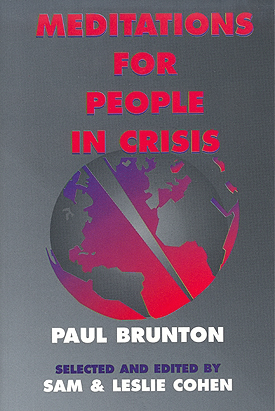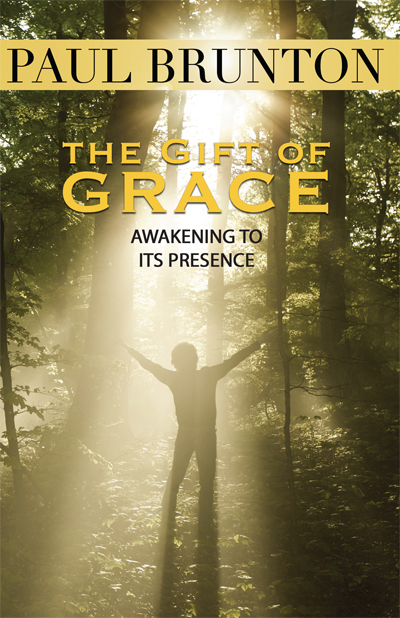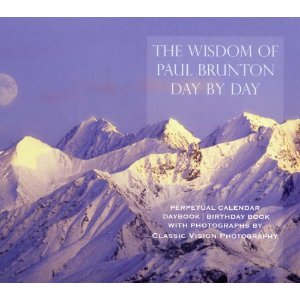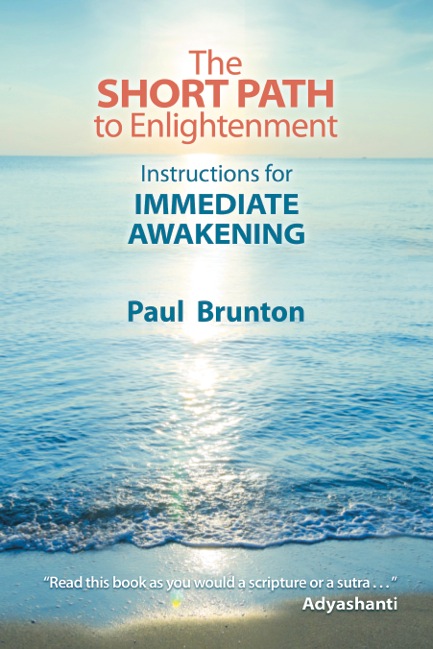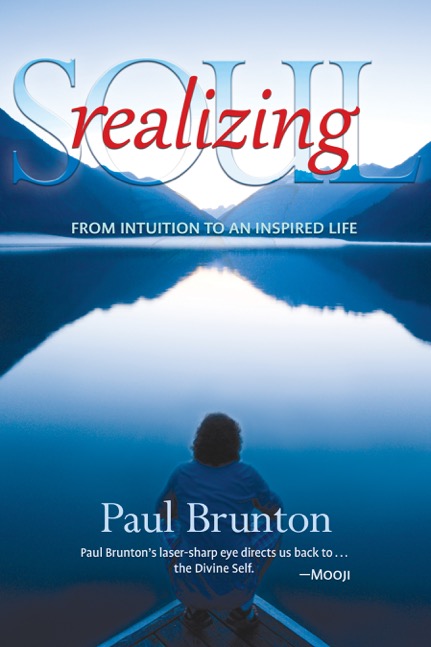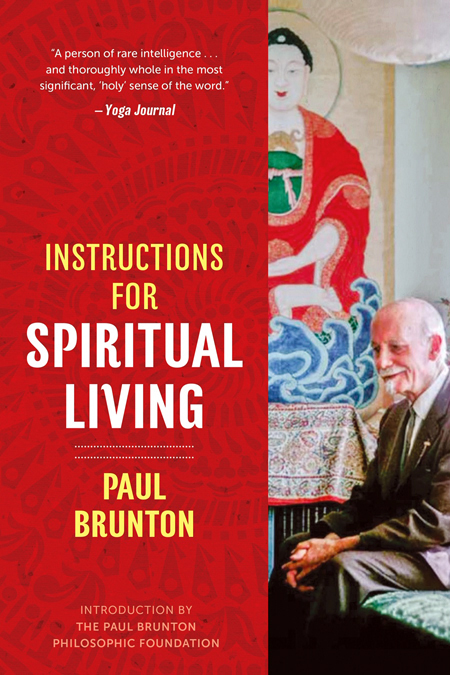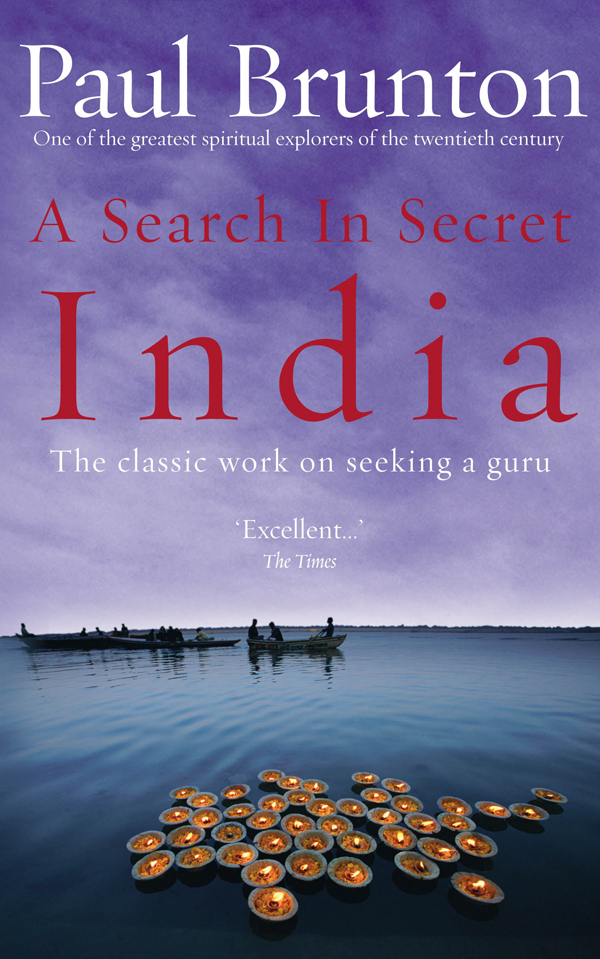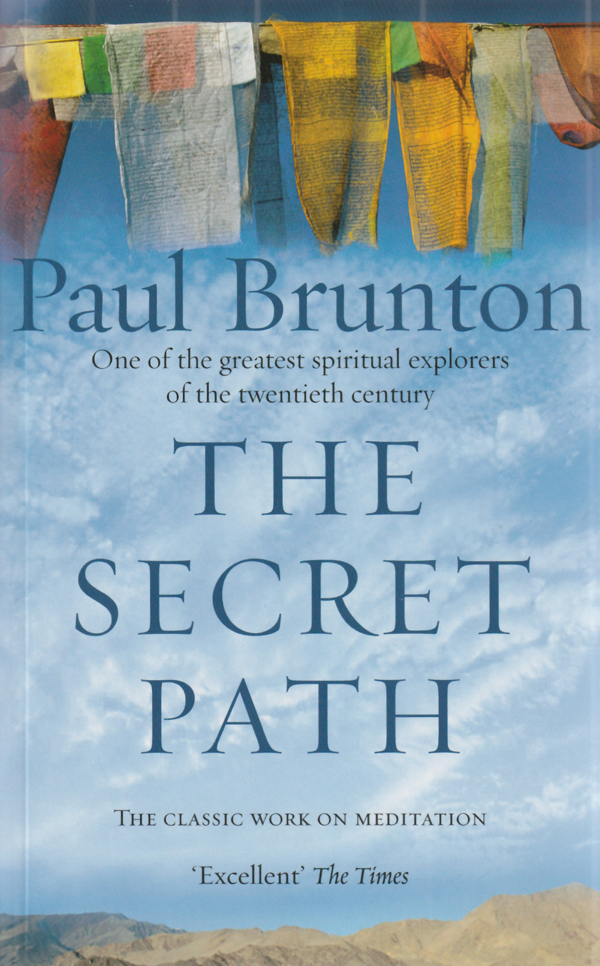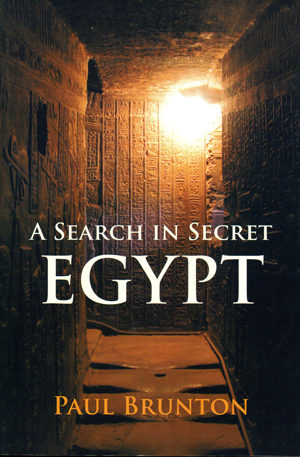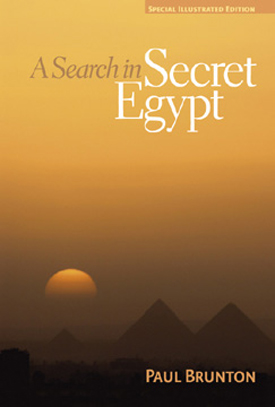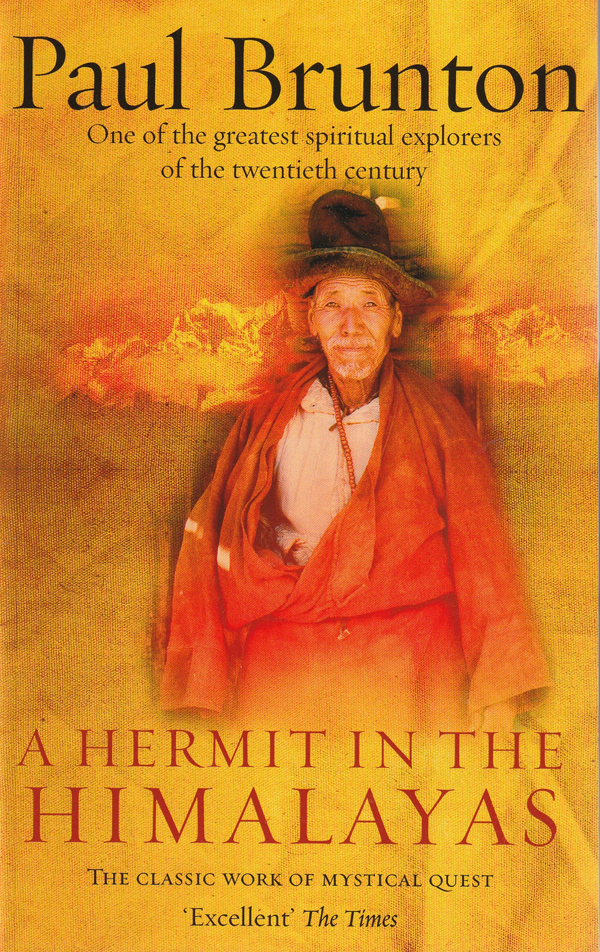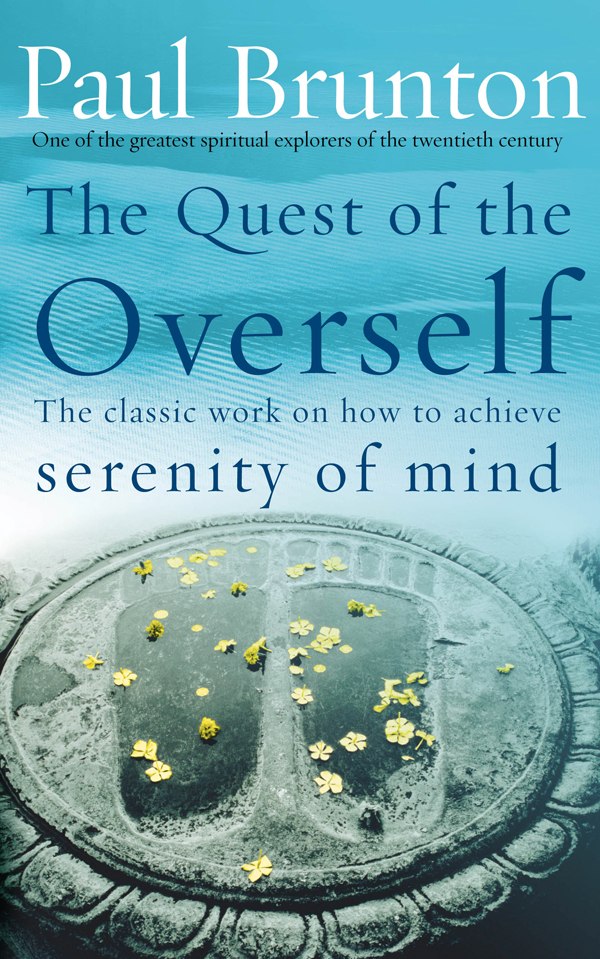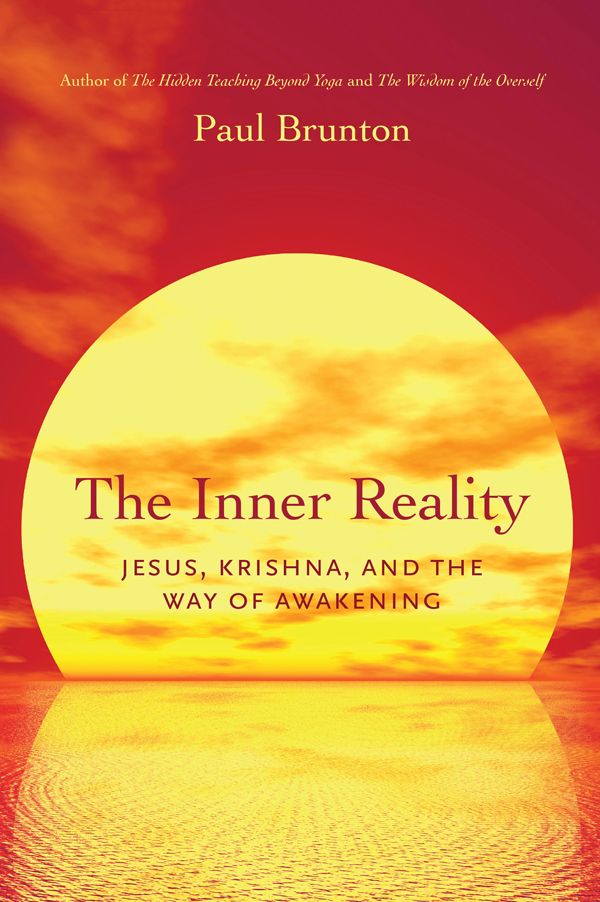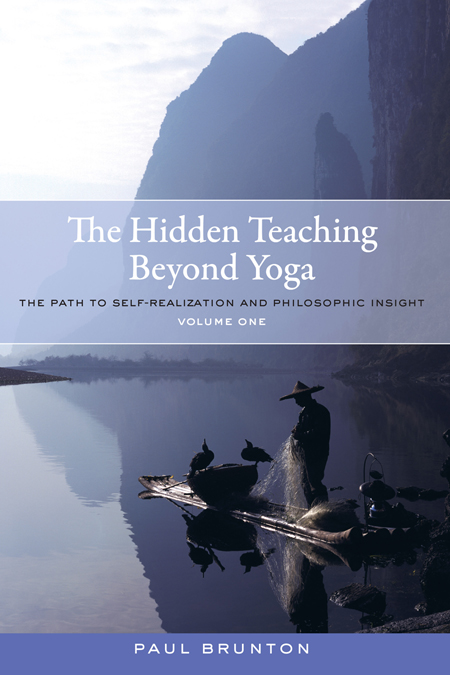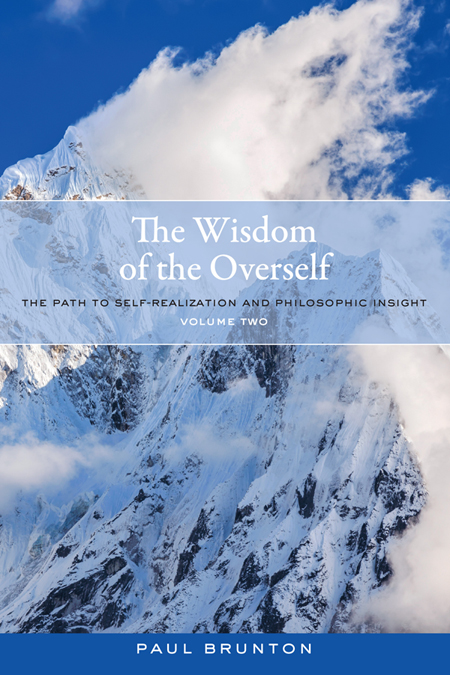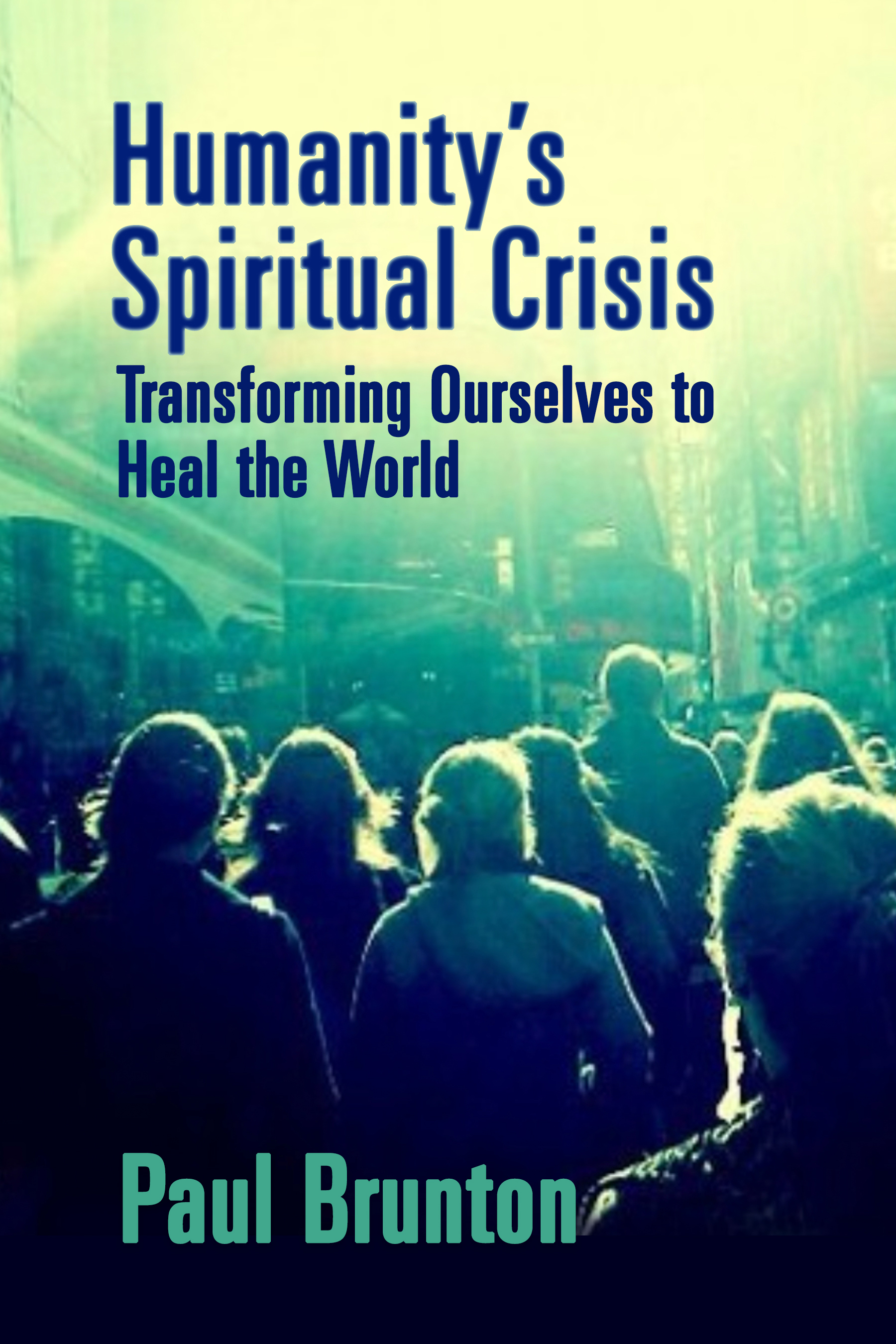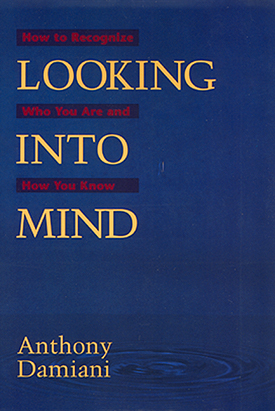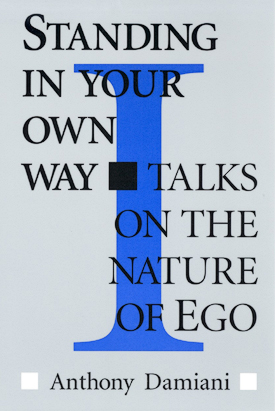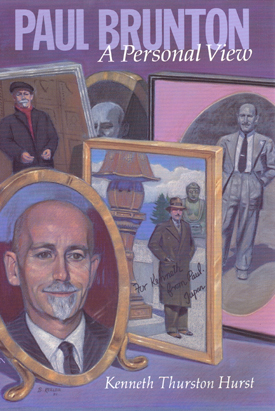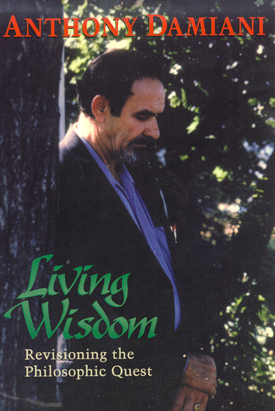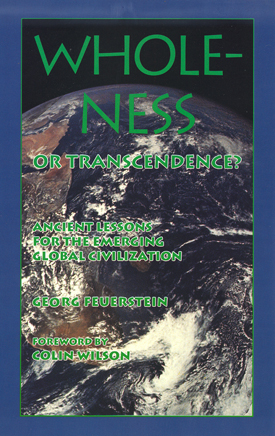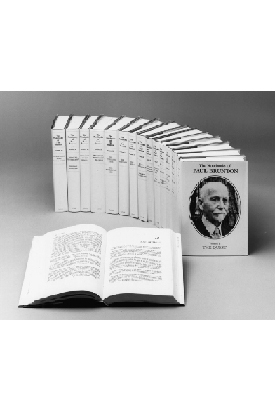The Notebooks of Paul Brunton volume 13
Relativity, Philosophy, and Mind By Paul Brunton
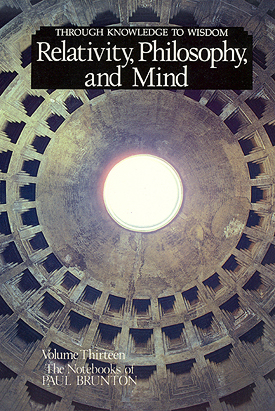
Retail/cover price: $24.95
Our price : $19.96
(You save $4.99!)
About this book:
The Notebooks of Paul Brunton volume 13
Relativity, Philosophy, and Mind
by Paul Brunton
"Science suppresses the subject of experience and studies the object. Mysticism suppresses the object and studies the subject. Philosophy suppresses nothing, studies subject and object . . . embraces the study of all experience." —P.B.
Subjects: Philosophy, Spirituality, New Science
5.75 x 8.5, softcover
(hardcover is available)
550 pages
ISBN 10: 0-943914-39-6
ISBN 13: 978-0-943914-39-8
Book Details
Examining the relationship between perception and events, this highly significant volume contributes several important ideas to the "bridge" between modern science and perennial wisdom teachings.
Part 1, The Reign of Relativity, explores the extent of relativity's domain and the implications of its principles for spiritual development.
Part 2, What is Philosophy?, gets to the heart of Paul Brunton's teachings: how to actualize reliable knowledge and durable wholeness through fulfilling, combining, and balancing the practical, intellectual, and mystical elements of the human psyche.
Part 3, Mentalism, examines the power of thought and celebrates a deeper level of each individual's own mind. It focuses on the fathomless untapped power within, with which we can improve our immediate selves and consequent circumstances.
Category Nineteen: THE REIGN OF RELATIVITY
INTRODUCTION
1. THE COSMOS OF CHANGE
The world appearance
2. THE DOUBLE STANDPOINT
Its cultivation and application
3. THE STATES OF CONSCIOUSNESS
The mysterious significance of dreams
The deep stillness of sleep
Trance and the 4th state of consciousness
4. TIME, SPACE, CAUSALITY
Their relative and mental nature
Perpetuity, eternity, and now
Living with time
5. THE VOID AS METAPHYSICAL FACT
Category Twenty: WHAT IS PHILOSOPHY?
INTRODUCTION
1. TOWARD DEFINING PHILOSOPHY
On the term 'philosophy'
Philosophy's transcendental "position"
Its value and benefits
Its inspired practicality
Its "worldliness"
Relation to religion & mysticism
Living synthesis, not anemic eclecticism
2. ITS CONTEMPORARY INFLUENCE
Response to a vital need
A more timely formulation
Whom it best serves
Some esotericism is still unavoidable
Dangers to be recognized
How philosophy presents itself
3. ITS REQUIREMENTS
Basic qualifications
Philosophic discipline
Wholeness, completeness, integrality
Balance
4. ITS REALIZATION BEYOND ECSTASY
Mysticism and mystical philosophy compared
Discriminating analysis, mystical depth
Keys to the ultimate path
Insight
Service
5. THE PHILOSOPHER
The philosopher's view of Truth
Category Twenty-One: MENTALISM
INTRODUCTION
1. THE SENSED WORLD
Body, brain, consciousness
The leap from sense to thought
2. THE WORLD AS MENTAL
Mind, the projector
Mind, the image-maker
Mind, the knower
3. THE INDIVIDUAL AND WORLD-MIND
The dream analogy
Individual mind and the world image
4. THE CHALLENGE OF MENTALISM
The effort required
Accepting the Truth
The position of modern science
Mentalism and related doctrines
5. THE KEY TO THE SPIRITUAL WORLD
The living practice
The powerful knowledge
The mystic experience
Consciousness as world
Consciousness and pure Mind
“. . . a veritable treasure-trove of philosophic-spiritual wisdom.” —Elisabeth Kubler-Ross
“. . . sensible and compelling. His work can stand beside that of such East-West bridges as Merton, Huxley, Suzuki, Watts, and Radhakrishnan. It should appeal to anyone concerned personally and academically with issues of spirituality.” —Choice
“Vigorous, clear-minded and independent . . . a synthesis of Eastern mysticism and Western rationality. . . A rich volume.” —Library Journal
“. . . a great gift to us Westerners who are seeking the spiritual.” —Charles T. Tart
“A person of rare intelligence. . . thoroughly alive, and whole in the most significant, 'holy' sense of the word.” —Yoga Journal
For more reviews of the Notebooks series, click here
Categories nineteen through twenty-one bring us to a critical turning point, a stage of profound deepening, in our understanding of self and world: properly understood, they provide a fresh basis for conduct, tap a deeper inspiration for living, and catalyze daily spiritual practices.
Relativity, Philosophy, and Mind is the composite title we devised for categories nineteen, twenty, and twenty-one as published together as a single volume (volume thirteen) in the printed edition of The Notebooks. Because of a unique light these three sections lend to one another, we continue to suggest that readers consider the three categories in relation to one another. This combination should be very helpful to readers who have had difficulty with earlier presentations of similar, but not identical, ideas in The Hidden Teaching Beyond Yoga and The Wisdom of the Overself. It should also be inspiring to new P.B. readers, giving them important keys to getting more from those two earlier books than was possible for many of us in previous years.
Many of us who read those earlier books, for example, were able to follow P.B.'s ideas on relativity without much difficulty. Intellectually, we could acknowledge the relativity of observer and observed; we could assent to the epistemological notion that all we experience, all we know is a product of our own minds. But we were considerably less amenable to the metaphysical premise that the natural universe is mentally constructed, that Mind is the essential substance of all that is. In the way that it addresses this particular problem, the Notebooks structure is a significant improvement on the earlier books.
P.B. here distinguishes much more carefully the ideas on relativity from those on mentalism. He also gives much more detail about what the essential intermediate step that bridges them involves — the step of achieving a balanced individual wholeness and assuming a philosophical perspective. The present structure of first, the ideas on relativity, second, the components essential to a philosophical perspective, and third, the ideas on mentalism makes the latter much easier to appreciate. His elaboration of the important distinctions between these three sets of ideas makes the transformative power of mentalism considerably more obvious. In the process, however, the reader will still have to do some real thinking. The Notebooks format doesn't provide a continuous sequence of reasoning intended to transform outlook from materialism to mentalism. The "missing" key is the reader's own mind, which must discover, develop, and apply this sequence for itself. P.B. has simply provided here the ideas needed to accomplish that discovery under one's own power.
The Reign of Relativity encompasses the current scientific development of Einstein's widely acclaimed Theory as well as the ancient observations of Shankaracharya. P.B.'s interest here is not so much to reiterate that Theory in layman's terms as to show the extent of relativity's domain and to explore the implications of its principles for spiritual development. His approach combines intellectual analysis and the cultivation of intuition through straightforward mystical exercises. His intention is to take us deeper than the superficial familiarity with the concepts of relativity and on to a full awareness of the substantial questions to which it gives rise.
Insight into the nature of relativity brings an understanding that what we see and know is directly related to our organs of perception and knowledge. Through exploring both the subjective and objective elements of relativity within becoming, as well as the relativity between being and becoming, we learn that what we perceive has neither more nor less reality than our own perception. The world of our everyday experience is consequently understood to possess, at the very least, a different reality than we had unconsciously assigned to it. It is clearly not what it appears to be — that is, among other things, it is not a field of fixed material objects that necessarily exist in their own right with the same forms that our perception gives them. Our physical senses, our awareness (or unawareness) of motion and location, our states of consciousness — in short, all the various elements of our mind-body complex — are at the very least contributing factors to the world of our experience. We say at the very least because even at this level of the teaching the question arises as to whether or not the so-called objects possess any self-identical extension at all independently of the relational factors in perception.
Recognition, real recognition, of the inexorable relativity of both "objective" phenomena and "subjective" faculties is a major, and usually unsettling, event. The unsettling feeling that accompanies it has a genuine basis: deep inside ourselves, we know that the faculties we are currently using are unreliable vehicles for ultimate truth, and we feel the urgency of discovering a more reliable means to knowledge.
Reactions to this situation have been dramatic, with implications reaching into a variety of fields. For some, the sense of the world's reality is undermined; for others, the sense of reason's reliability is threatened; for almost all, the possibility of authentically objective knowledge, non-psychological knowledge, is seriously challenged. If everything is relative, the cry goes out, is there then no Truth but only truths — tentative truths totally dependent on the standpoint taken? For some, the only ultimate Truth is that everything is relative; for others, Truth remains as that which is beyond the relative, revealing the relative as totally illusory. Each of these extreme viewpoints lends itself to a variety of interpretations, and there exists a spectrum of viewpoints between them. The range extends from the nihilistic "nothing is sacred'' to the Buddhistic "sacred No-thing,'' and from Pantheism to Theophany. Each interpretation serves as a basis for action and has tangible repercussions in daily living. Each is eminently challengeable. Each is an idea in our minds. How do we test the reality of these ideas we have about Reality? This is where Philosophy meets us: now we need it, and now its disciplines become genuinely meaningful.
Category twenty, What Is Philosophy?, meets us at the core of this so-called Kantian dilemma and points beyond psychology to reliable knowledge and durable selfhood. Everything now points to the need for a more reliable faculty of knowledge, and philosophy sets out to develop one. It brings in the dimension of "the moral law within'' and outlines a complete system of self-development oriented toward the awakening of an entirely new and nonpsychological faculty: insight. Relativity having turned our minds to the apparent dichotomy of being and becoming, What Is Philosophy? turns them toward a deeper level of our own being in which they can be realized as twin poles of a single reality that is our own truest self.
The philosophic training addresses the need for individual wholeness, and for the ability to distinguish between the reliably real and the merely apparent. Each faculty of the human psyche is fulfilled: neither feeling nor intellect nor will nor sensation is allowed to dominate all the others or to improperly subsume the role appropriately filled by one of the others. Then these faculties are all integrated under the guidance of the developing intuitive faculty and brought to a balance appropriate for that particular psyche. When this balance is achieved, insight arises: a faculty latent in all us but active only in the few who have achieved sagehood.
Once the philosophical viewpoint and experience is made more clear, the ideas of mentalism become more transparent. These ideas are not intended to produce a devaluation of the natural universe and practical experience; neither are they intended to evoke despair with respect to the possibility of ontological knowledge. They are intended to awaken us to what mind really is.
Category twenty-one, Mentalism, addresses the fact that most of us, without really investigating the knowledge-situation, assume that we know what we mean when we say "my mind.'' We find out that we don't. And as we awaken to what mind in its deeper layers is, mentalism becomes a celebration — not only of the mind's deeper reality but also of the intelligent universe.
The presentation of mentalism involves two levels. On one level, we are simply requested to try a different approach to reasoning about the knowledge situation. Showing how unsatisfactory the materialist presupposition proves to be, P.B. asks us to try a different premise. Let's see what happens if we work with the presupposition that mind is first, rather than last, in the perceptual series. Does this presupposition prove more satisfactory? For many of us, nothing more than honest, scrupulous thinking is required to evoke a resounding Yes. On a deeper level, P.B. tells us that this premise, experimental to reasoning, is in fact a firsthand experience in advanced stages of meditation. Its verification is available to anyone who will intelligently pursue the experiment.
At this deeper level, we see mentalism not as reality reduced but as reality revealed. Rather than to reduce the world to mere ideation, it shows the importance of ideation. It reveals the presence and accessibility of fathomless untapped power within us to improve — through improved ideation — our immediate selves and consequent circumstances. But most importantly, P.B. takes great care to assert that he is not here presenting just another form of philosophic idealism, and certainly not a solipsism. He does not challenge the superpersonal reality of the natural universe — only our materialistic conception of that universe. Implicit in his position is that the materialistic conception that has such power over our thought-processes is itself an idea, and a thoroughly unsatisfactory one. His final stance is that "science, which began by repudiating mind and exalting matter, is being forced by facts to end by repudiating matter and exalting mind. '' More detail on the relationship between the individual mind and a deeper, universal mind appears in categories twenty-five through twenty-eight. These categories are bound together in the printed edition as volume sixteen, Enlightened Mind, Divine Mind.
Editorial conventions here are the same as stated in the introductions to Perspectives and The Quset. Likewise, (P) at the end of a para indicates that it also appears in Perspectives, the introductory volume to this series.
Excerpts from Notebooks category nineteen, The Reign of Relativity
PREFATORY
THERE ARE three stages on the path of world enquiry. The first yields as its fruit that the world is but an idea, and this stage has been reached from the metaphysical end by thinkers such as Bishop Berkeley, and nearly reached from the scientific end by such a man as Eddington. The second stage involves the study of the three states, waking, dreaming, and deep sleep, and yields as its fruit the truth that ideas are transitory emanations out of their permanent cause, consciousness. The third stage is the most difficult, for it requires analysis of the nature of time, space, and causation, plus successful practice of yoga. It yields as its fruit the sense of Reality as something eternally abiding with one.
THE ORDINARY mentalness of the world and the superior reality of Mind illustrate the reign of relativity. This does not mean that the world is so utterly illusory that it is non-existent. It has a relative existence for everyone. But the enlightened ones are aware of the truth that Mind-in-Itself is there. They know it also by the wonderful experience of cosmic consciousness when everything falls away — including their own personal ego — and only THAT remains. This is not merely their point of view but something far and away beyond it that can only happen in the state of contemplation; hence it is a temporary one but — as Plotinus mentioned — a recurrent or accessible one.
From chapter 1: THE COSMOS OF CHANGE
1
The universe comes, exists, goes, comes again, and repeats this cycle. Man does the same until he breaks the illusion of common experience and penetrates into the reality behind it all and behind himself.
2
The discovery of relativity leads to the conclusion that we know only the appearances — and partial ones at that — of an incomprehensible creative Mystery.
3
All existence is stamped with these two characteristics — a coming-to-be and a passing-away. Where is the reality in, or behind, them?
4
Once we understand the true nature of Mind, and the universal law of Karma under which it operates, we can understand why the cosmos, as a series of dependent evolving mental images, has no end and no beginning and must be as eternal as Mind itself.
5
We live in a cosmos wherein infinite being is forever expressing its own inexpressible self. But as the limitations of it are done in time space motion and form, we are in a never-ending never-successful process.
From chapter 4: TIME, SPACE, CAUSALITY
Their relative and mental nature
15
Just as there are different heard sounds, seen objects, and felt things, so there are different kinds of experience and different levels of space and time.
16
There is, however, no single frame of time in which thoughts can be molded. For time, as we have seen, is a variable because it is an idea; it offers an unlimited variety of ways in which events might arrange themselves. There are a number of different frames and one of them is used for waking sensations while another is for dream perceptions. For the experience of a clock hour spent suffering the pangs of acute toothache will be much longer than the hour spent with a sweetheart. Time is ultimately mental.
17
Materialism is compelled to hold that there is only one uniform time. Mentalism holds that there are different kinds of time, not only for different kinds of beings but even for one and the same being.(P)
18
The most valuable metaphysical fruit of the quantum theory is its finding that the processes of the universe which occur in space and time, emanate from what is fundamentally not in space and time.(P)
27
Einstein proved by purely scientific and mathematical methods the relativity of time and space, but the Jain masters of India knew it without such helps — and this teaching was imparted three thousand years ago
Excerpts from Notebooks category twenty, What Is Philosophy?
PREFATORY
IT WAS the custom among Chinese, Indian, and Persian sacred writers to preface their writing by an introductory invocation, so this author does the same. He entrusts this new enterprise to divine guidance, to the loftier inspiration of his Masters during his own apprenticeship to Truth, and pays his due debt of acknowledgment to them. May they deign to guide his pen, and accept these pages as part of his silent recompense for the help and hope he received from them, which he now ventures to pass on in his turn.
WE MAY begin by asking what this philosophy offers us. It offers those who pursue it to the end a deep understanding of the world and a satisfying explanation of the significance of human experience. It offers them the power to penetrate appearances and to discover the genuinely real from the mere appearance of reality; it offers satisfaction of that desire which everyone, everywhere, holds somewhere in his heart — the desire to be free.
From chapter 1: TOWARD DEFINING PHILOSOPHY
1
The old Oriental idea is to be lost in the Infinite. The new Occidental ideal is to be in tune with the Infinite.
2
Neither the psychoanalyst nor even the religionist seeks that full purification and total transformation of the human being which philosophy alone seeks and alone achieves. All other paths — including the mystical ones — seek to effect a particular purpose or a partial one: only this is informed enough and willing enough to fulfil the complete purpose for which man has been put on earth by the World-Mind and surrender absolutely to it. If the philosopher has any desire at all, it is to know, understand, and co-operate with the infinitely intelligent and perfectly efficient World-Idea.
3
It is a transcendental idea that the mind gets hold of and knows. It is a gathering of clear supra-mental perceptions. It is the higher reason, the discriminating understanding. It penetrates the whole being and remains. Thus it becomes naturalized and continues the natural consciousness of the man.
4
It is not only a right intellectual attitude towards life. It is also an exalted emotional experience of life. Nor is it only an occasional attitude and an intermittent experience. It is sustained through the day and throughout the year.
5
Philosophy is an explanation of life and a distillation of its highest knowledge. Consequently it includes metaphysics. But it is not identical with metaphysics, being far greater.
From chapter 4: ITS REALIZATION BEYOND ECSTASY
Mysticism and mystical philosophy compared
1
Philosophy clears away all the unnecessary mystery from mysticism, while preserving a proper attitude of awe and reverence to whatever is worthy of it.
2
Whereas not a few mystics in the past have been gullible votaries of superstition also, philosophical mystics seek to be entirely free of it. They want their mysticism to be worthy of a rational man.
3
The difference between the two is that one is partially inspired whereas the other is fully inspired.
4
It is not enough to measure the grade of a mystic by his emotional feelings. We must also concern ourselves with his egolessness, his intellectual expression, his aesthetic sensitivity, and his effective practicality. These things make up the difference between an infantile mysticism and a philosophical mysticism.
5
There is this important difference of approach between the would-be mystic and the would-be philosopher. The first is often actuated by emotional conflicts or frustrations for which he seeks some kind of compensation. The second is motivated by a deep love of truth for its own sake.
6
There is much more under judgement here than a merely verbal distinction. The matter is not so simple but far more complex than it seems. For philosophical mysticism introduces some new principles into mysticism which make a profound difference in results and values.
7
Whereas mysticism alone acquaints a man with his true Self, philosophical mysticism does this and also acquaints him with his connection with universal life. It not only tells him of the great laws of evolution and compensation, but also affiliates him with the great soul of the world.
Excerpts from Notebooks category twenty-one, Mentalism
PREFATORY
ONE THOUSAND years ago the doctrine of mentalism was taught at Angkor, according to an inscription of that time which I saw there, the inscription of Srey Santhor. It likened the appearance of the doctrine in the world of faith and culture to the sun bringing back the light.
THE PHILOSOPHER today has a twofold path: to cultivate the gentle feeling of Overself in the heart within and to study the mentalness of the world without. A whole new generation is beginning to seek a better and higher life physically and emotionally, as well as more understanding of what it is all about. Here is where absorbing the knowledge of mentalism leads to dissolving the futility of materialism.
From chapter 1: THE SENSED WORLD
1
The evolution from a world-view based upon the Eye to one based upon the Idea, is an evolution from materiality to spirituality. It is consummated when the vividness of sense experience is transcended by the truth of abstract conceptions.
2
The truth is that the hands touch and the eyes see but the surface of things. They do not touch nor see the completeness, the inner reality of things. In our ignorance we look upon forms as reality, we must needs have something to touch and handle if we are to believe in its real existence. The forms are alright where they are but they do not exhaust existence. That which tells us they are there, the consciousness which causes our senses to function and our ego to become aware of the results of this functioning, is itself closer to real being than the physical forms or mental images which are but tokens of its presence. We look always for mere forms and so miss their infinite source. We try to reduce life to arithmetic, to make one thing the effect of some other thing as cause, never dreaming that the sublime essence of both is unchanging and uncaused, formless and bodiless, the self-existent reality of Mind!
3
Our trouble is that our notion of what constitutes reality is incorrectly limited to the world of the five senses, with the sad consequence that we devise dozens of ways of finding happiness but never arrive at it.
4
We accept the first and chief suggestion of our senses without inquiry, the suggestion that we are dealing with a world totally outside us. It is an error which arises because we do not possess a deep enough understanding of ourselves. But this ignorance arises in its own turn because we do not penetrate deeply enough into our understanding of the world. Hence, the way out of it involves a twofold inquiry: into both self and not-self.
5
He sees that in the end the five senses are particular functions of the mind.
From chapter 4: THE CHALLENGE OF MENTALISM
1
If materialism reduces man to mere physical substance, mentalism magnifies him to the grander stature of Mind.
2
The mere definition of mentalism startles the common mind, antagonizes the materialistic mind, but comforts the spiritually oriented mind.
3
Mentalism is the first and best way of breaking through the glamour which the world's materiality throws over most people. The Real is hidden from them. Consciousness is then supposed to be a property belonging to a lump of matter. This upside-down assumption is a false piece of knowledge. It must be dropped from possession, from held faith and reasoned conclusion - and each person must do this for himself: no other can take his place, not even a guru - or the illusion will return.
4
So long as a man does not see that his sense experiences are really mental experiences, so long will the truth of spiritual being remain effectually veiled from him.
5
In this doctrine of mentalism we come upon the central mystery of philosophy.
From chapter 5: THE KEY TO THE SPIRITUAL WORLD
The living practice
1
Lack of a correct world view, and of the capacity to think logically and reason soundly from it, may easily be hidden when the aspirant has only to talk about his beliefs to his fellow aspirants, but it will become apparent when he has to apply himself to dealing with the necessary problems and everyday situations that arise in the course of human experience. In the face of such demands on his practical qualities, his theoretical shortcomings will then show themselves. If it is difficult to judge the truth of a system or a doctrine by intellectual means alone, it is much easier to do so by observance of its visible results in living.
2
Because Mind has always and universally existed so has its associated aspect, Energy, or Life-Force. And because Mind connotes meaning and creates purpose, my life has a meaning and a purpose linked with the Universe's: it is neither empty nor alone. Hope, prayer, truth, and Presence are my birthright. I am entitled to them. But I must claim the right, make it my own through faith at first, and possibly through knowledge later.
3
This invariable truth, that man does not exist in matter but in mind, blesses those who receive it. For it helps to console them in affliction, to guide them in meditation, and to illumine them in reflection.
4
Perceive these two things now: the dreamlike character of life in the world, and the illusory character of the personal ego. Hence the need of the "What am I?" enquiry, that the illusion of the ego may be dispelled. When you can see these things clearly, then you may be still and undisturbed, unentangled, and unillusioned amid the struggle of life. You will be wise, free, impervious to the petty persecution of men - their lies, malice, and injuries - for being no longer identified with the personality, you are no longer their target.
In his own words:
“Writing, which is an exercise of the intellect to some, is an act of worship to me. I rise from my desk in the same mood as that in which I leave an hour of prayer in an old cathedral, or of meditation in a little wood . . .” —from Perspectives, volume 1 in The Notebooks of Paul Brunton, p. 143
“P.B. as a private person does not count. There are hundreds of millions of such persons anyway. What is one man and his quest? P.B.’s personal experiences and views are not of any particular importance or special consequence. What happens to the individual man named P.B. is a matter of no account to anyone except himself. But what happens to the hundreds of thousands of spiritual seekers today who are following the same path that he pioneered is a serious matter and calls for prolonged consideration. Surely the hundreds of thousands of Western seekers who stand behind him and whom indeed, in one sense, he represents, do count. P.B. as a symbol of the scattered group of Western truth-seekers who, by following his writings so increasingly and so eagerly, virtually follow him also, does count. He personifies their aspirations, their repulsion from materialism and attraction toward mysticism, their interest in Oriental wisdom and their shepherdless state. As a symbol of this Western movement of thought, he is vastly greater than himself. In his mind and person the historic need for a new grasp of the contemporary spiritual problem found a plain-speaking voice . . .” —from Perspectives, volume 1 in The Notebooks of Paul Brunton, p. 145
Learn more about Paul Brunton through articles at the Paul Brunton Philosophic Foundation web site
Electronic versions of this book are available from all major (Amazon Kindle, Barnes & Noble, Apple, Kobo, etc.) and most smaller ebook vendors. Please don't try to order ebooks directly from us, as we are not yet able to deliver anything to you in a preferred electronic format.
To see all our Paul Brunton titles, scroll down to The Complete Paul Brunton Opus below.
To see and/or order individual volumes in The Notebooks of Paul Brunton, hover your mouse over the specific cover in the Notebooks section of Complete Paul Brunton Opus below, then click on Details in the box that appears within it.
Click here to see or order the complete set of The Notebooks of Paul Brunton.
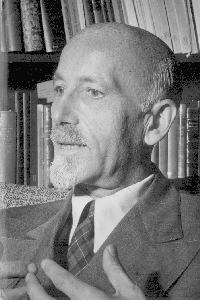
Paul Brunton helps us hear the melody behind the medley of today's "spiritual marketplace." His late writings raise the bar for what we can expect of spiritual teachings and teachers, and what we can do for ourselves. Born in London in 1898, he soon became a leading pioneer of much of what we now take for granted. He traveled widely throughout the world (long before it was fashionable) to meet living masters of various traditions with whom he then lived and studied. His eleven early books from 1934–1952 shared much of what he learned, and helped set the stage for dramatic east-west exchanges of the late 20th century. Paul Brunton left more than 10,000 pages of enormously helpful new work in notebooks he reserved for posthumous publication, much of which is now available as The Notebooks of Paul Brunton. See "The Complete Paul Brunton Opus" in blue below to see his many works available on this site. You can also search on Paul Brunton in the search bar to browse the selections, or click on a link below for specific connections.
Click here for an article about Paul Brunton.
Click here for The Notebooks of Paul Brunton.
To access small theme-based books compiled from Paul Brunton's writings, scroll down to Derived from the Notebooks below.
To access Paul Brunton's early writings, published from 1934–1952, scroll down to Paul Brunton's Early Works below.
To access commentaries on Paul Brunton and his work by his leading student, Anthony Damiani, as well as other writings about Paul Brunton and/or his work, scroll down to Commentaries and Reflections on Paul Brunton and His Work below.
Book Details
Examining the relationship between perception and events, this highly significant volume contributes several important ideas to the "bridge" between modern science and perennial wisdom teachings.
Part 1, The Reign of Relativity, explores the extent of relativity's domain and the implications of its principles for spiritual development.
Part 2, What is Philosophy?, gets to the heart of Paul Brunton's teachings: how to actualize reliable knowledge and durable wholeness through fulfilling, combining, and balancing the practical, intellectual, and mystical elements of the human psyche.
Part 3, Mentalism, examines the power of thought and celebrates a deeper level of each individual's own mind. It focuses on the fathomless untapped power within, with which we can improve our immediate selves and consequent circumstances.
Category Nineteen: THE REIGN OF RELATIVITY
INTRODUCTION
1. THE COSMOS OF CHANGE
The world appearance
2. THE DOUBLE STANDPOINT
Its cultivation and application
3. THE STATES OF CONSCIOUSNESS
The mysterious significance of dreams
The deep stillness of sleep
Trance and the 4th state of consciousness
4. TIME, SPACE, CAUSALITY
Their relative and mental nature
Perpetuity, eternity, and now
Living with time
5. THE VOID AS METAPHYSICAL FACT
Category Twenty: WHAT IS PHILOSOPHY?
INTRODUCTION
1. TOWARD DEFINING PHILOSOPHY
On the term 'philosophy'
Philosophy's transcendental "position"
Its value and benefits
Its inspired practicality
Its "worldliness"
Relation to religion & mysticism
Living synthesis, not anemic eclecticism
2. ITS CONTEMPORARY INFLUENCE
Response to a vital need
A more timely formulation
Whom it best serves
Some esotericism is still unavoidable
Dangers to be recognized
How philosophy presents itself
3. ITS REQUIREMENTS
Basic qualifications
Philosophic discipline
Wholeness, completeness, integrality
Balance
4. ITS REALIZATION BEYOND ECSTASY
Mysticism and mystical philosophy compared
Discriminating analysis, mystical depth
Keys to the ultimate path
Insight
Service
5. THE PHILOSOPHER
The philosopher's view of Truth
Category Twenty-One: MENTALISM
INTRODUCTION
1. THE SENSED WORLD
Body, brain, consciousness
The leap from sense to thought
2. THE WORLD AS MENTAL
Mind, the projector
Mind, the image-maker
Mind, the knower
3. THE INDIVIDUAL AND WORLD-MIND
The dream analogy
Individual mind and the world image
4. THE CHALLENGE OF MENTALISM
The effort required
Accepting the Truth
The position of modern science
Mentalism and related doctrines
5. THE KEY TO THE SPIRITUAL WORLD
The living practice
The powerful knowledge
The mystic experience
Consciousness as world
Consciousness and pure Mind
“. . . a veritable treasure-trove of philosophic-spiritual wisdom.” —Elisabeth Kubler-Ross
“. . . sensible and compelling. His work can stand beside that of such East-West bridges as Merton, Huxley, Suzuki, Watts, and Radhakrishnan. It should appeal to anyone concerned personally and academically with issues of spirituality.” —Choice
“Vigorous, clear-minded and independent . . . a synthesis of Eastern mysticism and Western rationality. . . A rich volume.” —Library Journal
“. . . a great gift to us Westerners who are seeking the spiritual.” —Charles T. Tart
“A person of rare intelligence. . . thoroughly alive, and whole in the most significant, 'holy' sense of the word.” —Yoga Journal
For more reviews of the Notebooks series, click here
Categories nineteen through twenty-one bring us to a critical turning point, a stage of profound deepening, in our understanding of self and world: properly understood, they provide a fresh basis for conduct, tap a deeper inspiration for living, and catalyze daily spiritual practices.
Relativity, Philosophy, and Mind is the composite title we devised for categories nineteen, twenty, and twenty-one as published together as a single volume (volume thirteen) in the printed edition of The Notebooks. Because of a unique light these three sections lend to one another, we continue to suggest that readers consider the three categories in relation to one another. This combination should be very helpful to readers who have had difficulty with earlier presentations of similar, but not identical, ideas in The Hidden Teaching Beyond Yoga and The Wisdom of the Overself. It should also be inspiring to new P.B. readers, giving them important keys to getting more from those two earlier books than was possible for many of us in previous years.
Many of us who read those earlier books, for example, were able to follow P.B.'s ideas on relativity without much difficulty. Intellectually, we could acknowledge the relativity of observer and observed; we could assent to the epistemological notion that all we experience, all we know is a product of our own minds. But we were considerably less amenable to the metaphysical premise that the natural universe is mentally constructed, that Mind is the essential substance of all that is. In the way that it addresses this particular problem, the Notebooks structure is a significant improvement on the earlier books.
P.B. here distinguishes much more carefully the ideas on relativity from those on mentalism. He also gives much more detail about what the essential intermediate step that bridges them involves — the step of achieving a balanced individual wholeness and assuming a philosophical perspective. The present structure of first, the ideas on relativity, second, the components essential to a philosophical perspective, and third, the ideas on mentalism makes the latter much easier to appreciate. His elaboration of the important distinctions between these three sets of ideas makes the transformative power of mentalism considerably more obvious. In the process, however, the reader will still have to do some real thinking. The Notebooks format doesn't provide a continuous sequence of reasoning intended to transform outlook from materialism to mentalism. The "missing" key is the reader's own mind, which must discover, develop, and apply this sequence for itself. P.B. has simply provided here the ideas needed to accomplish that discovery under one's own power.
The Reign of Relativity encompasses the current scientific development of Einstein's widely acclaimed Theory as well as the ancient observations of Shankaracharya. P.B.'s interest here is not so much to reiterate that Theory in layman's terms as to show the extent of relativity's domain and to explore the implications of its principles for spiritual development. His approach combines intellectual analysis and the cultivation of intuition through straightforward mystical exercises. His intention is to take us deeper than the superficial familiarity with the concepts of relativity and on to a full awareness of the substantial questions to which it gives rise.
Insight into the nature of relativity brings an understanding that what we see and know is directly related to our organs of perception and knowledge. Through exploring both the subjective and objective elements of relativity within becoming, as well as the relativity between being and becoming, we learn that what we perceive has neither more nor less reality than our own perception. The world of our everyday experience is consequently understood to possess, at the very least, a different reality than we had unconsciously assigned to it. It is clearly not what it appears to be — that is, among other things, it is not a field of fixed material objects that necessarily exist in their own right with the same forms that our perception gives them. Our physical senses, our awareness (or unawareness) of motion and location, our states of consciousness — in short, all the various elements of our mind-body complex — are at the very least contributing factors to the world of our experience. We say at the very least because even at this level of the teaching the question arises as to whether or not the so-called objects possess any self-identical extension at all independently of the relational factors in perception.
Recognition, real recognition, of the inexorable relativity of both "objective" phenomena and "subjective" faculties is a major, and usually unsettling, event. The unsettling feeling that accompanies it has a genuine basis: deep inside ourselves, we know that the faculties we are currently using are unreliable vehicles for ultimate truth, and we feel the urgency of discovering a more reliable means to knowledge.
Reactions to this situation have been dramatic, with implications reaching into a variety of fields. For some, the sense of the world's reality is undermined; for others, the sense of reason's reliability is threatened; for almost all, the possibility of authentically objective knowledge, non-psychological knowledge, is seriously challenged. If everything is relative, the cry goes out, is there then no Truth but only truths — tentative truths totally dependent on the standpoint taken? For some, the only ultimate Truth is that everything is relative; for others, Truth remains as that which is beyond the relative, revealing the relative as totally illusory. Each of these extreme viewpoints lends itself to a variety of interpretations, and there exists a spectrum of viewpoints between them. The range extends from the nihilistic "nothing is sacred'' to the Buddhistic "sacred No-thing,'' and from Pantheism to Theophany. Each interpretation serves as a basis for action and has tangible repercussions in daily living. Each is eminently challengeable. Each is an idea in our minds. How do we test the reality of these ideas we have about Reality? This is where Philosophy meets us: now we need it, and now its disciplines become genuinely meaningful.
Category twenty, What Is Philosophy?, meets us at the core of this so-called Kantian dilemma and points beyond psychology to reliable knowledge and durable selfhood. Everything now points to the need for a more reliable faculty of knowledge, and philosophy sets out to develop one. It brings in the dimension of "the moral law within'' and outlines a complete system of self-development oriented toward the awakening of an entirely new and nonpsychological faculty: insight. Relativity having turned our minds to the apparent dichotomy of being and becoming, What Is Philosophy? turns them toward a deeper level of our own being in which they can be realized as twin poles of a single reality that is our own truest self.
The philosophic training addresses the need for individual wholeness, and for the ability to distinguish between the reliably real and the merely apparent. Each faculty of the human psyche is fulfilled: neither feeling nor intellect nor will nor sensation is allowed to dominate all the others or to improperly subsume the role appropriately filled by one of the others. Then these faculties are all integrated under the guidance of the developing intuitive faculty and brought to a balance appropriate for that particular psyche. When this balance is achieved, insight arises: a faculty latent in all us but active only in the few who have achieved sagehood.
Once the philosophical viewpoint and experience is made more clear, the ideas of mentalism become more transparent. These ideas are not intended to produce a devaluation of the natural universe and practical experience; neither are they intended to evoke despair with respect to the possibility of ontological knowledge. They are intended to awaken us to what mind really is.
Category twenty-one, Mentalism, addresses the fact that most of us, without really investigating the knowledge-situation, assume that we know what we mean when we say "my mind.'' We find out that we don't. And as we awaken to what mind in its deeper layers is, mentalism becomes a celebration — not only of the mind's deeper reality but also of the intelligent universe.
The presentation of mentalism involves two levels. On one level, we are simply requested to try a different approach to reasoning about the knowledge situation. Showing how unsatisfactory the materialist presupposition proves to be, P.B. asks us to try a different premise. Let's see what happens if we work with the presupposition that mind is first, rather than last, in the perceptual series. Does this presupposition prove more satisfactory? For many of us, nothing more than honest, scrupulous thinking is required to evoke a resounding Yes. On a deeper level, P.B. tells us that this premise, experimental to reasoning, is in fact a firsthand experience in advanced stages of meditation. Its verification is available to anyone who will intelligently pursue the experiment.
At this deeper level, we see mentalism not as reality reduced but as reality revealed. Rather than to reduce the world to mere ideation, it shows the importance of ideation. It reveals the presence and accessibility of fathomless untapped power within us to improve — through improved ideation — our immediate selves and consequent circumstances. But most importantly, P.B. takes great care to assert that he is not here presenting just another form of philosophic idealism, and certainly not a solipsism. He does not challenge the superpersonal reality of the natural universe — only our materialistic conception of that universe. Implicit in his position is that the materialistic conception that has such power over our thought-processes is itself an idea, and a thoroughly unsatisfactory one. His final stance is that "science, which began by repudiating mind and exalting matter, is being forced by facts to end by repudiating matter and exalting mind. '' More detail on the relationship between the individual mind and a deeper, universal mind appears in categories twenty-five through twenty-eight. These categories are bound together in the printed edition as volume sixteen, Enlightened Mind, Divine Mind.
Editorial conventions here are the same as stated in the introductions to Perspectives and The Quset. Likewise, (P) at the end of a para indicates that it also appears in Perspectives, the introductory volume to this series.
Excerpts from Notebooks category nineteen, The Reign of Relativity
PREFATORY
THERE ARE three stages on the path of world enquiry. The first yields as its fruit that the world is but an idea, and this stage has been reached from the metaphysical end by thinkers such as Bishop Berkeley, and nearly reached from the scientific end by such a man as Eddington. The second stage involves the study of the three states, waking, dreaming, and deep sleep, and yields as its fruit the truth that ideas are transitory emanations out of their permanent cause, consciousness. The third stage is the most difficult, for it requires analysis of the nature of time, space, and causation, plus successful practice of yoga. It yields as its fruit the sense of Reality as something eternally abiding with one.
THE ORDINARY mentalness of the world and the superior reality of Mind illustrate the reign of relativity. This does not mean that the world is so utterly illusory that it is non-existent. It has a relative existence for everyone. But the enlightened ones are aware of the truth that Mind-in-Itself is there. They know it also by the wonderful experience of cosmic consciousness when everything falls away — including their own personal ego — and only THAT remains. This is not merely their point of view but something far and away beyond it that can only happen in the state of contemplation; hence it is a temporary one but — as Plotinus mentioned — a recurrent or accessible one.
From chapter 1: THE COSMOS OF CHANGE
1
The universe comes, exists, goes, comes again, and repeats this cycle. Man does the same until he breaks the illusion of common experience and penetrates into the reality behind it all and behind himself.
2
The discovery of relativity leads to the conclusion that we know only the appearances — and partial ones at that — of an incomprehensible creative Mystery.
3
All existence is stamped with these two characteristics — a coming-to-be and a passing-away. Where is the reality in, or behind, them?
4
Once we understand the true nature of Mind, and the universal law of Karma under which it operates, we can understand why the cosmos, as a series of dependent evolving mental images, has no end and no beginning and must be as eternal as Mind itself.
5
We live in a cosmos wherein infinite being is forever expressing its own inexpressible self. But as the limitations of it are done in time space motion and form, we are in a never-ending never-successful process.
From chapter 4: TIME, SPACE, CAUSALITY
Their relative and mental nature
15
Just as there are different heard sounds, seen objects, and felt things, so there are different kinds of experience and different levels of space and time.
16
There is, however, no single frame of time in which thoughts can be molded. For time, as we have seen, is a variable because it is an idea; it offers an unlimited variety of ways in which events might arrange themselves. There are a number of different frames and one of them is used for waking sensations while another is for dream perceptions. For the experience of a clock hour spent suffering the pangs of acute toothache will be much longer than the hour spent with a sweetheart. Time is ultimately mental.
17
Materialism is compelled to hold that there is only one uniform time. Mentalism holds that there are different kinds of time, not only for different kinds of beings but even for one and the same being.(P)
18
The most valuable metaphysical fruit of the quantum theory is its finding that the processes of the universe which occur in space and time, emanate from what is fundamentally not in space and time.(P)
27
Einstein proved by purely scientific and mathematical methods the relativity of time and space, but the Jain masters of India knew it without such helps — and this teaching was imparted three thousand years ago
Excerpts from Notebooks category twenty, What Is Philosophy?
PREFATORY
IT WAS the custom among Chinese, Indian, and Persian sacred writers to preface their writing by an introductory invocation, so this author does the same. He entrusts this new enterprise to divine guidance, to the loftier inspiration of his Masters during his own apprenticeship to Truth, and pays his due debt of acknowledgment to them. May they deign to guide his pen, and accept these pages as part of his silent recompense for the help and hope he received from them, which he now ventures to pass on in his turn.
WE MAY begin by asking what this philosophy offers us. It offers those who pursue it to the end a deep understanding of the world and a satisfying explanation of the significance of human experience. It offers them the power to penetrate appearances and to discover the genuinely real from the mere appearance of reality; it offers satisfaction of that desire which everyone, everywhere, holds somewhere in his heart — the desire to be free.
From chapter 1: TOWARD DEFINING PHILOSOPHY
1
The old Oriental idea is to be lost in the Infinite. The new Occidental ideal is to be in tune with the Infinite.
2
Neither the psychoanalyst nor even the religionist seeks that full purification and total transformation of the human being which philosophy alone seeks and alone achieves. All other paths — including the mystical ones — seek to effect a particular purpose or a partial one: only this is informed enough and willing enough to fulfil the complete purpose for which man has been put on earth by the World-Mind and surrender absolutely to it. If the philosopher has any desire at all, it is to know, understand, and co-operate with the infinitely intelligent and perfectly efficient World-Idea.
3
It is a transcendental idea that the mind gets hold of and knows. It is a gathering of clear supra-mental perceptions. It is the higher reason, the discriminating understanding. It penetrates the whole being and remains. Thus it becomes naturalized and continues the natural consciousness of the man.
4
It is not only a right intellectual attitude towards life. It is also an exalted emotional experience of life. Nor is it only an occasional attitude and an intermittent experience. It is sustained through the day and throughout the year.
5
Philosophy is an explanation of life and a distillation of its highest knowledge. Consequently it includes metaphysics. But it is not identical with metaphysics, being far greater.
From chapter 4: ITS REALIZATION BEYOND ECSTASY
Mysticism and mystical philosophy compared
1
Philosophy clears away all the unnecessary mystery from mysticism, while preserving a proper attitude of awe and reverence to whatever is worthy of it.
2
Whereas not a few mystics in the past have been gullible votaries of superstition also, philosophical mystics seek to be entirely free of it. They want their mysticism to be worthy of a rational man.
3
The difference between the two is that one is partially inspired whereas the other is fully inspired.
4
It is not enough to measure the grade of a mystic by his emotional feelings. We must also concern ourselves with his egolessness, his intellectual expression, his aesthetic sensitivity, and his effective practicality. These things make up the difference between an infantile mysticism and a philosophical mysticism.
5
There is this important difference of approach between the would-be mystic and the would-be philosopher. The first is often actuated by emotional conflicts or frustrations for which he seeks some kind of compensation. The second is motivated by a deep love of truth for its own sake.
6
There is much more under judgement here than a merely verbal distinction. The matter is not so simple but far more complex than it seems. For philosophical mysticism introduces some new principles into mysticism which make a profound difference in results and values.
7
Whereas mysticism alone acquaints a man with his true Self, philosophical mysticism does this and also acquaints him with his connection with universal life. It not only tells him of the great laws of evolution and compensation, but also affiliates him with the great soul of the world.
Excerpts from Notebooks category twenty-one, Mentalism
PREFATORY
ONE THOUSAND years ago the doctrine of mentalism was taught at Angkor, according to an inscription of that time which I saw there, the inscription of Srey Santhor. It likened the appearance of the doctrine in the world of faith and culture to the sun bringing back the light.
THE PHILOSOPHER today has a twofold path: to cultivate the gentle feeling of Overself in the heart within and to study the mentalness of the world without. A whole new generation is beginning to seek a better and higher life physically and emotionally, as well as more understanding of what it is all about. Here is where absorbing the knowledge of mentalism leads to dissolving the futility of materialism.
From chapter 1: THE SENSED WORLD
1
The evolution from a world-view based upon the Eye to one based upon the Idea, is an evolution from materiality to spirituality. It is consummated when the vividness of sense experience is transcended by the truth of abstract conceptions.
2
The truth is that the hands touch and the eyes see but the surface of things. They do not touch nor see the completeness, the inner reality of things. In our ignorance we look upon forms as reality, we must needs have something to touch and handle if we are to believe in its real existence. The forms are alright where they are but they do not exhaust existence. That which tells us they are there, the consciousness which causes our senses to function and our ego to become aware of the results of this functioning, is itself closer to real being than the physical forms or mental images which are but tokens of its presence. We look always for mere forms and so miss their infinite source. We try to reduce life to arithmetic, to make one thing the effect of some other thing as cause, never dreaming that the sublime essence of both is unchanging and uncaused, formless and bodiless, the self-existent reality of Mind!
3
Our trouble is that our notion of what constitutes reality is incorrectly limited to the world of the five senses, with the sad consequence that we devise dozens of ways of finding happiness but never arrive at it.
4
We accept the first and chief suggestion of our senses without inquiry, the suggestion that we are dealing with a world totally outside us. It is an error which arises because we do not possess a deep enough understanding of ourselves. But this ignorance arises in its own turn because we do not penetrate deeply enough into our understanding of the world. Hence, the way out of it involves a twofold inquiry: into both self and not-self.
5
He sees that in the end the five senses are particular functions of the mind.
From chapter 4: THE CHALLENGE OF MENTALISM
1
If materialism reduces man to mere physical substance, mentalism magnifies him to the grander stature of Mind.
2
The mere definition of mentalism startles the common mind, antagonizes the materialistic mind, but comforts the spiritually oriented mind.
3
Mentalism is the first and best way of breaking through the glamour which the world's materiality throws over most people. The Real is hidden from them. Consciousness is then supposed to be a property belonging to a lump of matter. This upside-down assumption is a false piece of knowledge. It must be dropped from possession, from held faith and reasoned conclusion - and each person must do this for himself: no other can take his place, not even a guru - or the illusion will return.
4
So long as a man does not see that his sense experiences are really mental experiences, so long will the truth of spiritual being remain effectually veiled from him.
5
In this doctrine of mentalism we come upon the central mystery of philosophy.
From chapter 5: THE KEY TO THE SPIRITUAL WORLD
The living practice
1
Lack of a correct world view, and of the capacity to think logically and reason soundly from it, may easily be hidden when the aspirant has only to talk about his beliefs to his fellow aspirants, but it will become apparent when he has to apply himself to dealing with the necessary problems and everyday situations that arise in the course of human experience. In the face of such demands on his practical qualities, his theoretical shortcomings will then show themselves. If it is difficult to judge the truth of a system or a doctrine by intellectual means alone, it is much easier to do so by observance of its visible results in living.
2
Because Mind has always and universally existed so has its associated aspect, Energy, or Life-Force. And because Mind connotes meaning and creates purpose, my life has a meaning and a purpose linked with the Universe's: it is neither empty nor alone. Hope, prayer, truth, and Presence are my birthright. I am entitled to them. But I must claim the right, make it my own through faith at first, and possibly through knowledge later.
3
This invariable truth, that man does not exist in matter but in mind, blesses those who receive it. For it helps to console them in affliction, to guide them in meditation, and to illumine them in reflection.
4
Perceive these two things now: the dreamlike character of life in the world, and the illusory character of the personal ego. Hence the need of the "What am I?" enquiry, that the illusion of the ego may be dispelled. When you can see these things clearly, then you may be still and undisturbed, unentangled, and unillusioned amid the struggle of life. You will be wise, free, impervious to the petty persecution of men - their lies, malice, and injuries - for being no longer identified with the personality, you are no longer their target.
In his own words:
“Writing, which is an exercise of the intellect to some, is an act of worship to me. I rise from my desk in the same mood as that in which I leave an hour of prayer in an old cathedral, or of meditation in a little wood . . .” —from Perspectives, volume 1 in The Notebooks of Paul Brunton, p. 143
“P.B. as a private person does not count. There are hundreds of millions of such persons anyway. What is one man and his quest? P.B.’s personal experiences and views are not of any particular importance or special consequence. What happens to the individual man named P.B. is a matter of no account to anyone except himself. But what happens to the hundreds of thousands of spiritual seekers today who are following the same path that he pioneered is a serious matter and calls for prolonged consideration. Surely the hundreds of thousands of Western seekers who stand behind him and whom indeed, in one sense, he represents, do count. P.B. as a symbol of the scattered group of Western truth-seekers who, by following his writings so increasingly and so eagerly, virtually follow him also, does count. He personifies their aspirations, their repulsion from materialism and attraction toward mysticism, their interest in Oriental wisdom and their shepherdless state. As a symbol of this Western movement of thought, he is vastly greater than himself. In his mind and person the historic need for a new grasp of the contemporary spiritual problem found a plain-speaking voice . . .” —from Perspectives, volume 1 in The Notebooks of Paul Brunton, p. 145
Learn more about Paul Brunton through articles at the Paul Brunton Philosophic Foundation web site
Electronic versions of this book are available from all major (Amazon Kindle, Barnes & Noble, Apple, Kobo, etc.) and most smaller ebook vendors. Please don't try to order ebooks directly from us, as we are not yet able to deliver anything to you in a preferred electronic format.
To see all our Paul Brunton titles, scroll down to The Complete Paul Brunton Opus below.
To see and/or order individual volumes in The Notebooks of Paul Brunton, hover your mouse over the specific cover in the Notebooks section of Complete Paul Brunton Opus below, then click on Details in the box that appears within it.
Click here to see or order the complete set of The Notebooks of Paul Brunton.
About Paul Brunton

Paul Brunton helps us hear the melody behind the medley of today's "spiritual marketplace." His late writings raise the bar for what we can expect of spiritual teachings and teachers, and what we can do for ourselves. Born in London in 1898, he soon became a leading pioneer of much of what we now take for granted. He traveled widely throughout the world (long before it was fashionable) to meet living masters of various traditions with whom he then lived and studied. His eleven early books from 1934–1952 shared much of what he learned, and helped set the stage for dramatic east-west exchanges of the late 20th century. Paul Brunton left more than 10,000 pages of enormously helpful new work in notebooks he reserved for posthumous publication, much of which is now available as The Notebooks of Paul Brunton. See "The Complete Paul Brunton Opus" in blue below to see his many works available on this site. You can also search on Paul Brunton in the search bar to browse the selections, or click on a link below for specific connections.
Click here for an article about Paul Brunton.
Click here for The Notebooks of Paul Brunton.
To access small theme-based books compiled from Paul Brunton's writings, scroll down to Derived from the Notebooks below.
To access Paul Brunton's early writings, published from 1934–1952, scroll down to Paul Brunton's Early Works below.
To access commentaries on Paul Brunton and his work by his leading student, Anthony Damiani, as well as other writings about Paul Brunton and/or his work, scroll down to Commentaries and Reflections on Paul Brunton and His Work below.
The Complete Paul Brunton Opus:
Paul Brunton's most mature work, in the order he specified for posthumous publication.
Smaller books on popular/timely themes, developed from the Notebooks and published posthumously.
Paul Brunton's works published during his lifetime from 1934-1952
Commentaries/Reflections by other authors on Paul Brunton or his works.

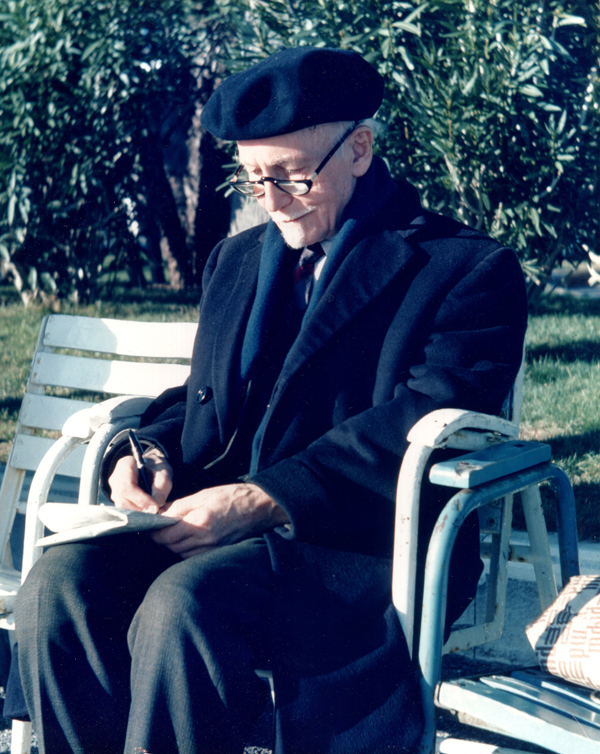

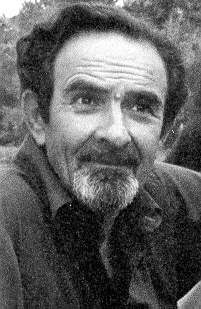


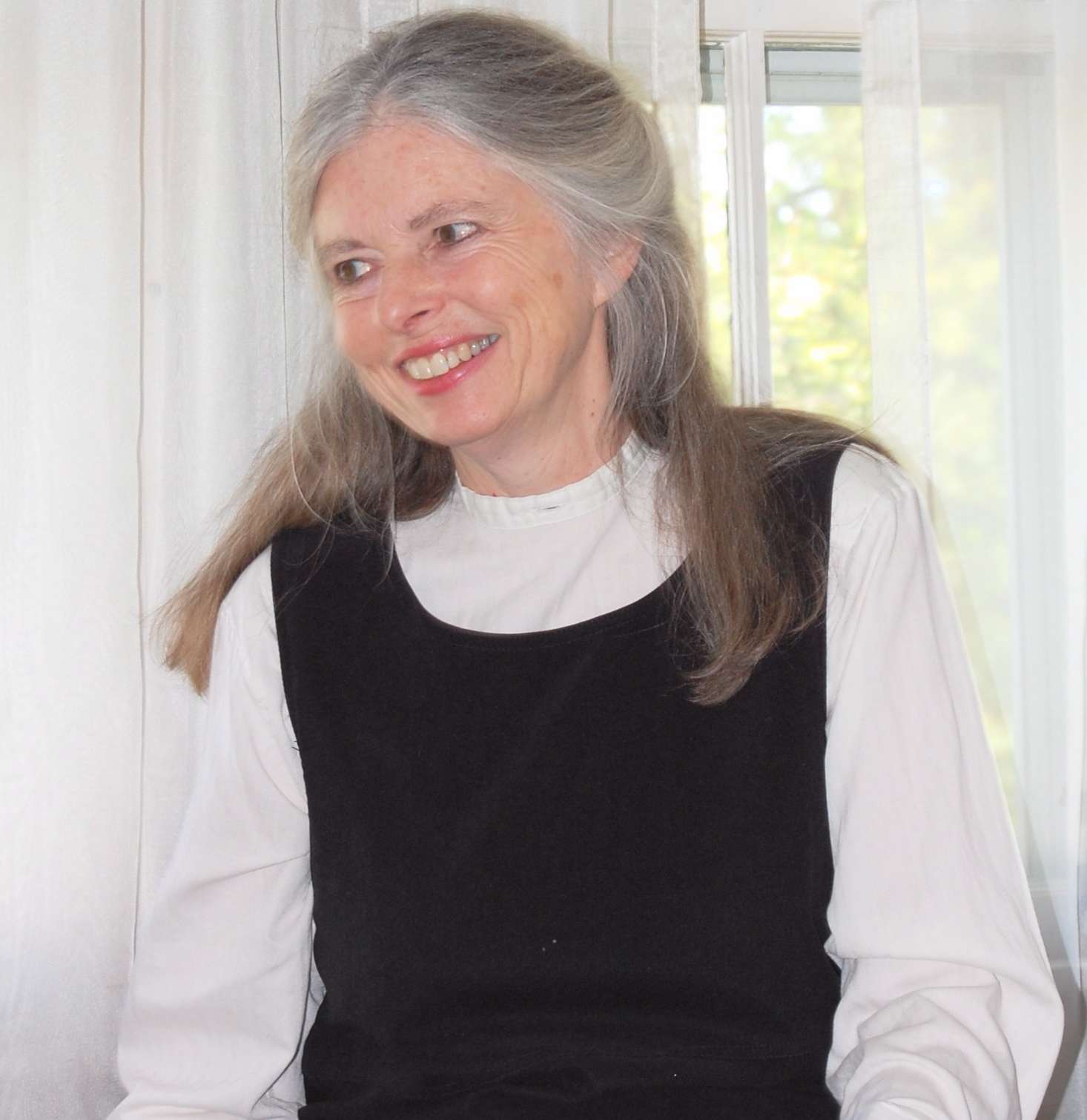
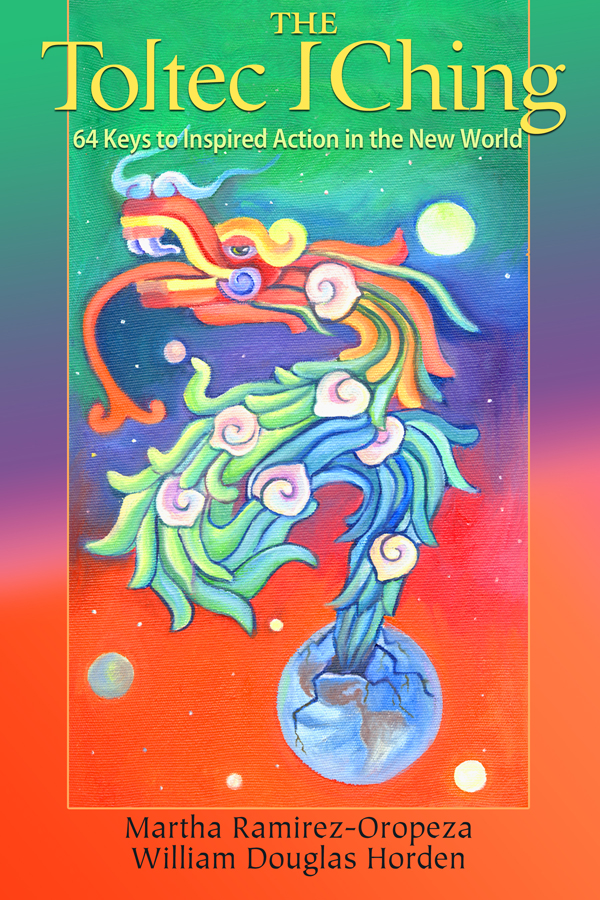
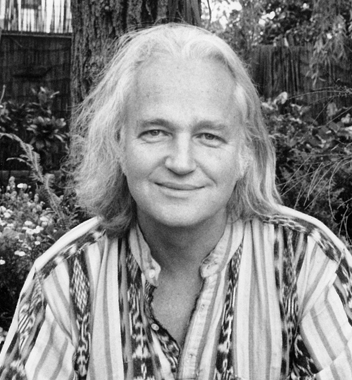
.jpg)
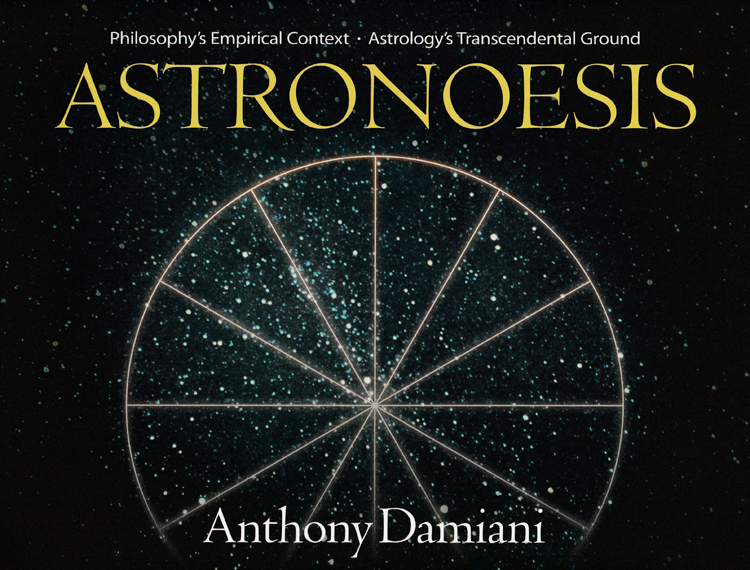
.jpg)
.jpg)
.jpg)
.jpg)
.jpg)
.jpg)
.jpg)
.jpg)
.jpg)
.jpg)
